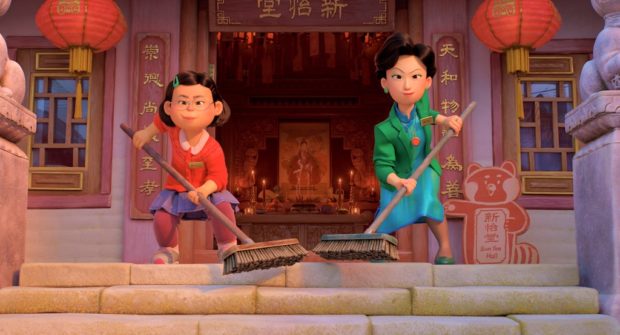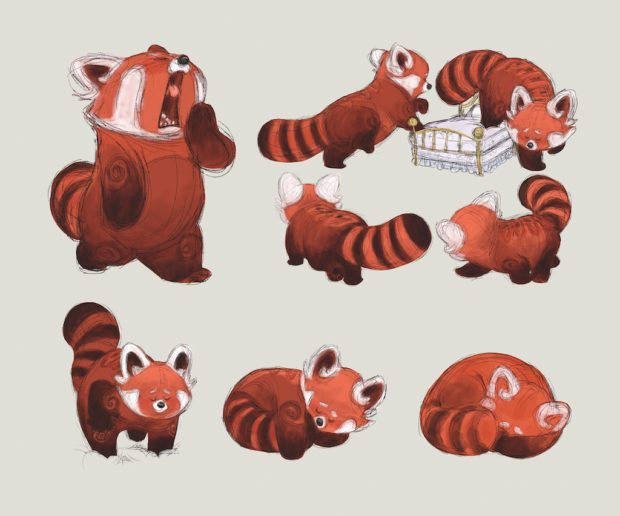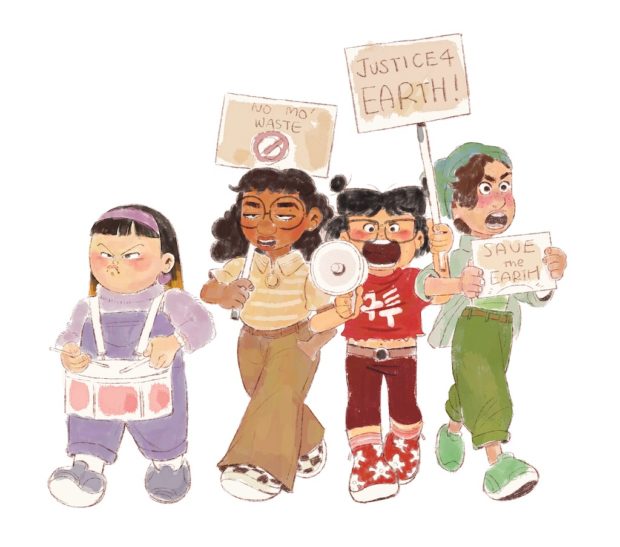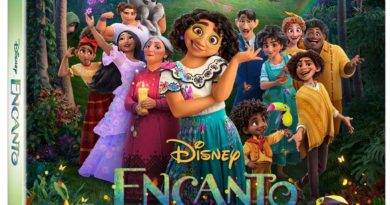Preview: Pixar’s “Turning Red”
Coming to Disney+ on March 11 is “Turning Red,” a coming of age story of Mei, a self-possessed 13-year-old balancing the expectations of her mother with her own loves of boy bands and karaoke. In a long lead press day, the artistic team came together to describe their visions for the unique film.

First, director Domee Shi the inspiration of a major film telling a mother-daughter story about a first generation teenager going through puberty.
Shi: I emigrated to Toronto, Canada when I was two years old, like Mei Lee in the movie, I’m an only child and I was always super close to my parents, especially my mom since my dad had to go away for work often. And it was just the two of us. We did everything together. We commuted together to work and to school in downtown Toronto, we went on mother/daughter bus trips and vacations together. But then as all kids do, I started to grow up, I started changing, I started getting into anime, comics, hang out with my friends more and more and less and less with my mom. And she didn’t understand why I was obsessed with these fictional characters with huge eyes and colorful spiky hair.
Turning Red is just inspired by this universal struggle of growing up and trying to figure out how to honor your parents but also stay true to yourself. And for Mei Lee in the movie, the red panda is that magical spark that sets off this internal conflict within herself. Up until that point, Mei thinks she has it all figured out, like we all did before we woke up one day and realized all of a sudden, we’re covered in body hair, we smell funky, and our emotions are all over the place, and we’re hungry like all the time.

On how they created the atmosphere of adolescence on set, producer Lindsey Collins said:
The crew started bringing in their old middle school yearbooks, they shared stories of their, they shared stories of their awkward moments in-in middle school and also those of us who are parents shared our bad parenting moments. As a team, we just really tried to be real with one another about our daily failures and our daily successes. And it was an energy I hadn’t experienced before frankly on a feature film.
On the design of Mei’s red panda alter ego, production designer Rona Liu described creating the contrast of a wild animal trapped in a domestic world.
Mei’s Panda symbolizes all of Mei’s intense feelings, so it’s really important that she feels cute, but also gives the vibe that she is messy and doesn’t have it all together. We made her figure round and chunky. Her fur is ultra fluffy but also clumpy in areas to show that she’s not perfectly groomed. And we designed her whiskers to be uneven and crinkled. And to give the vibe that she is a magical red panda, we gave her a little swirl on each arm. And Mei Panda needed to feel visually trapped in this body that she’s not comfortable in, and we needed to make her look like she doesn’t actually belong in the house. So we did these early tests for scale to make sure that she’s actually too big for her home.

Visual Effects Supervisor, Danielle Feinberg and lead animators Patty Kihm and Aaron Hartline.
Feinberg: As the Visual Effects Supervisor on the film, a big part of my job is to take all of those hopes and dreams that Rona described and make sure we have the technology and the know-how to create them in the computer, and so we can get them onto the screen. With those hopes and dreams being an entirely new look, it was just a little bit of a challenge. The biggest part of that challenge for Turning Red was that the inspiration was coming from a very two- dimensional place with very graphic references like anime. So how could we take that inspiration and marry it with our typically very complex, detailed, three- dimensional world.
Kihm: Through some of our other early animation tests, we learned to exaggerate Mei’s body poses and added cartoonier eye shapes by shrinking down her pupils to tiny dots. And on the opposite end of the spectrum, we’re growing her pupils and adding stars in her eyes. This was a new look for our Pixar characters, and it was exciting to see it used in a shot. Again, this is our research phase. All this information is compiled and given to the animation team to use as a guide as they start working on the film.

Hartline: Here at Pixar, we animators are trained usually to show both eyes on screen since it is the first place that the audience looks for emotion. However, in Red, whenever it was possible, we leaned into a more graphic 2D look for Mei… Now you can see Ming, and she just moves her hands up and down off the-off the screen while the rest of her is completely still. This gives Red its really fun, unique, really pushed style. However, that took a lot of untraining our animators. Breaking them away from wanting to animate a person how they naturally see out there every day, and instead leaning into more of a stylized, isolated motion.


